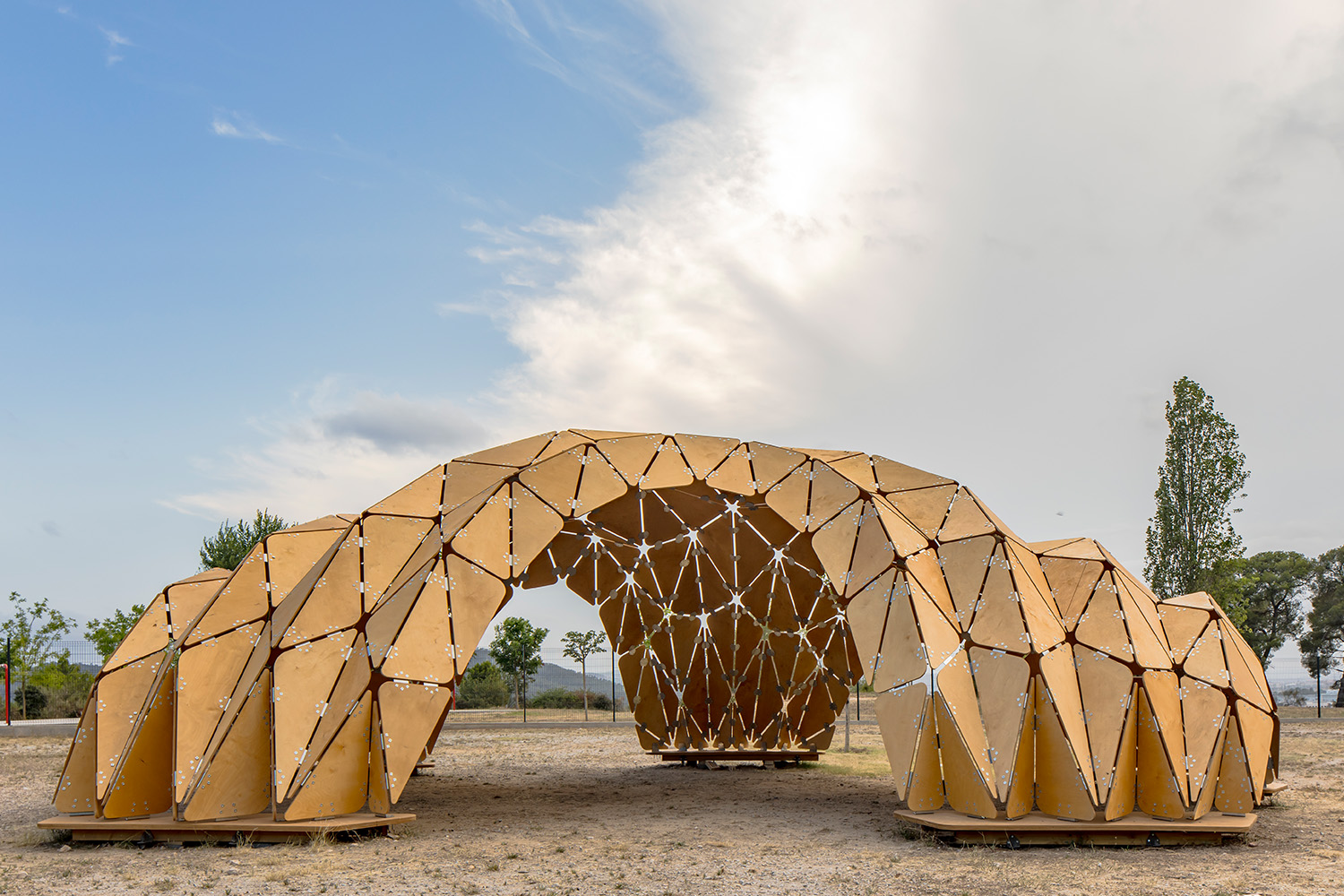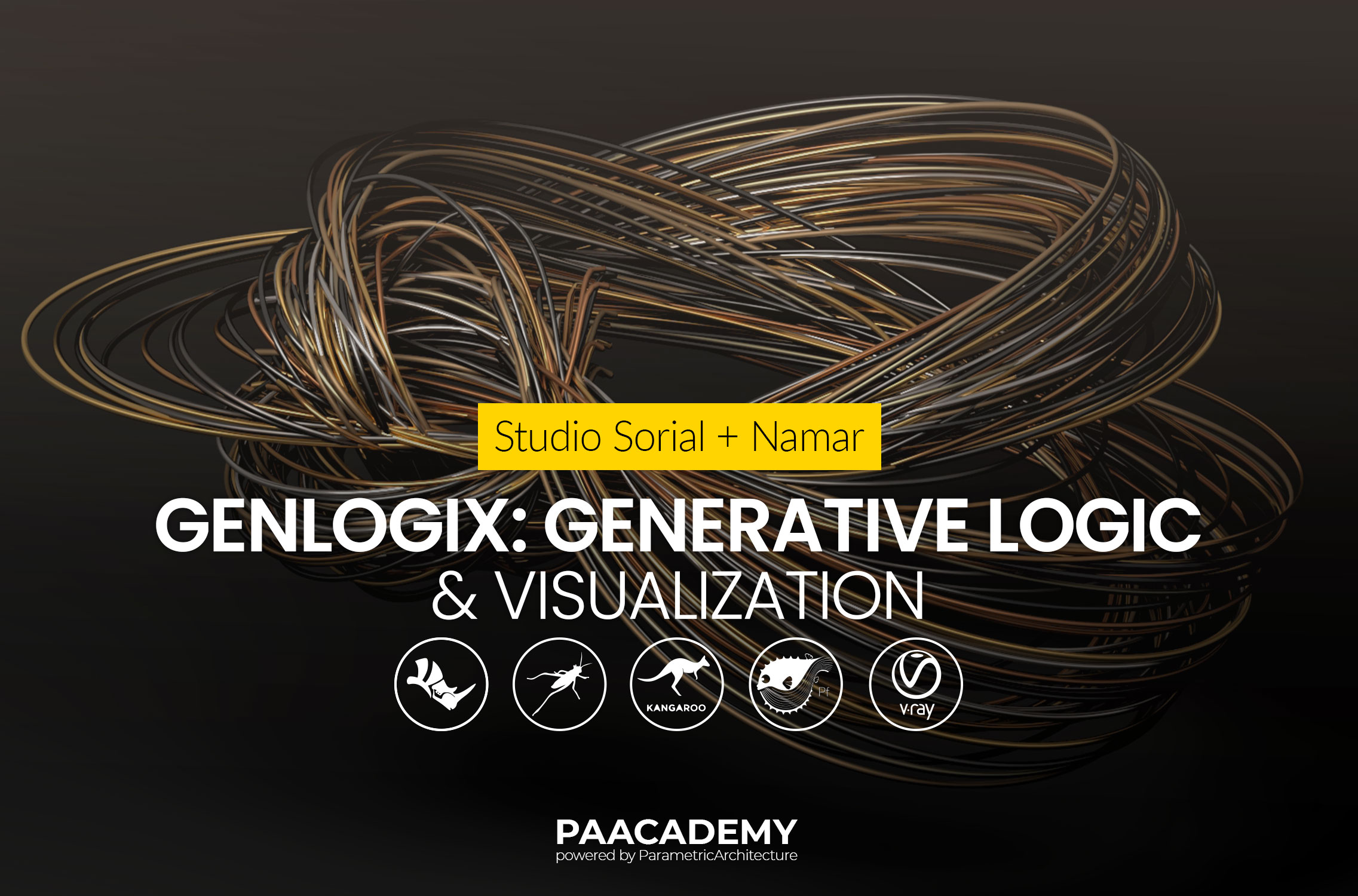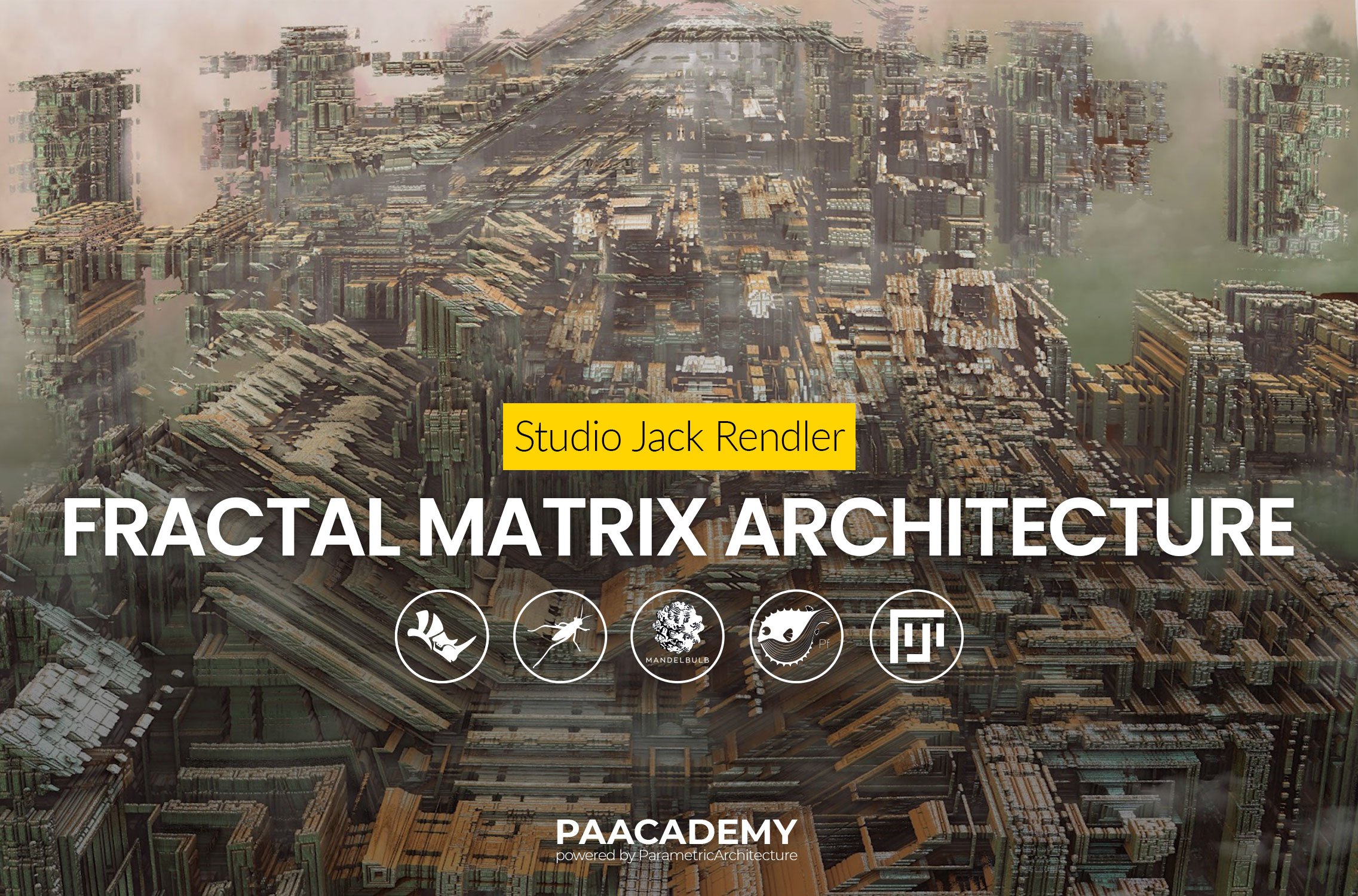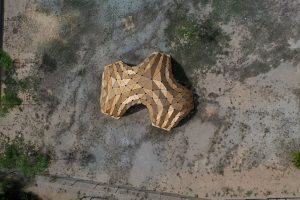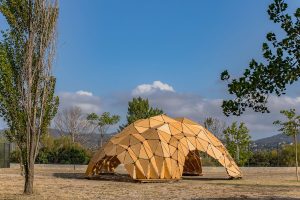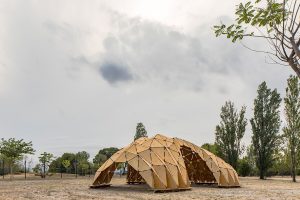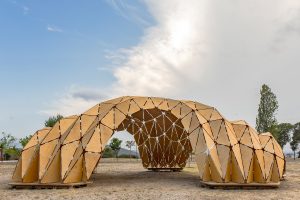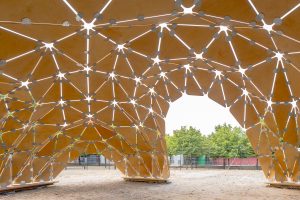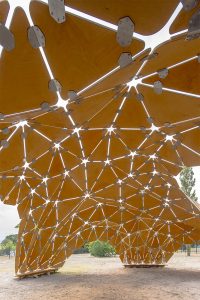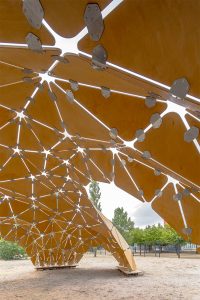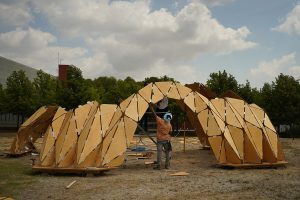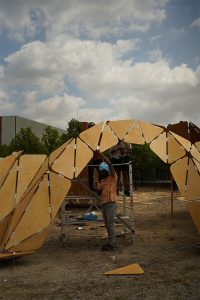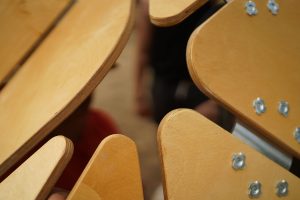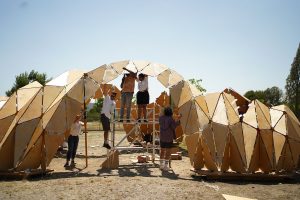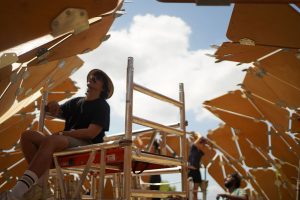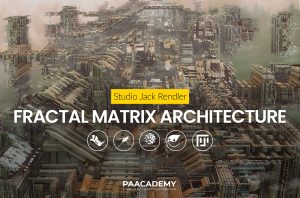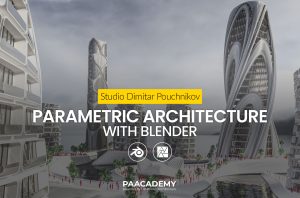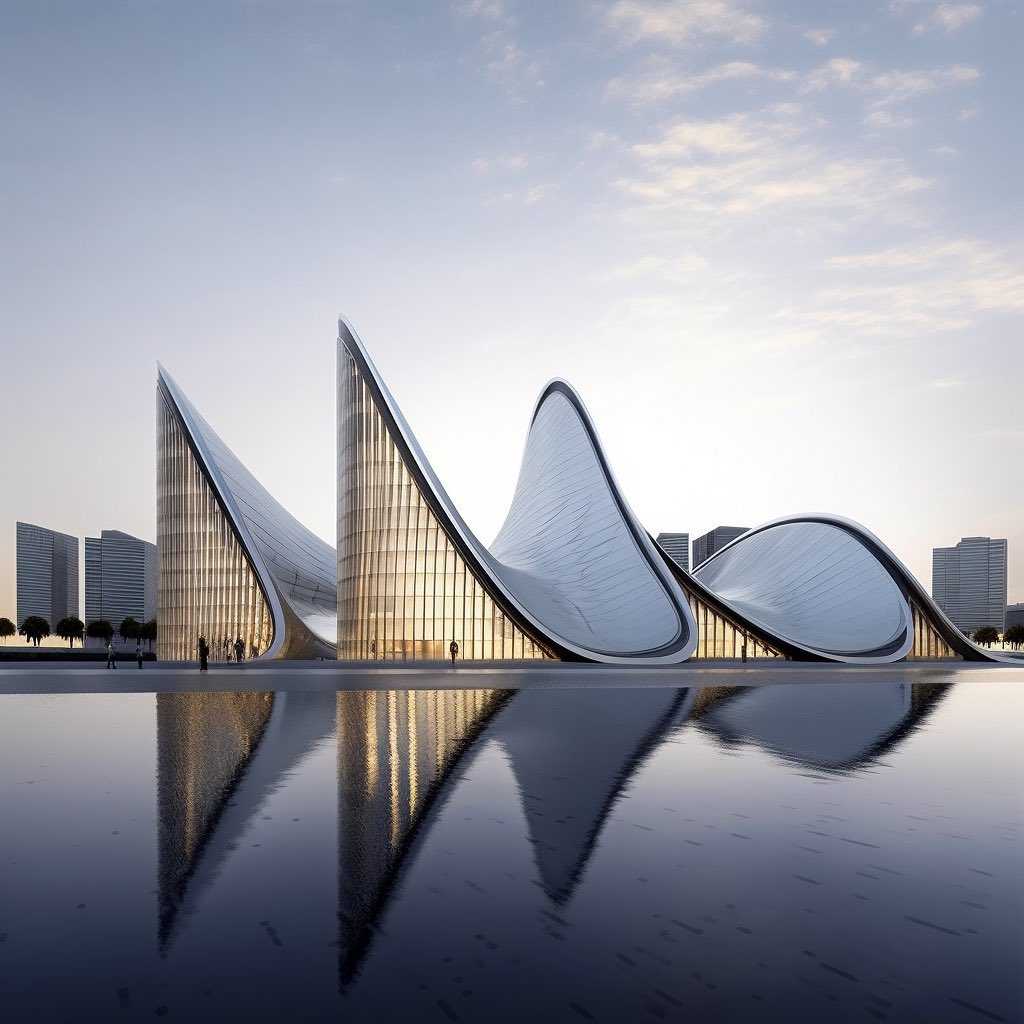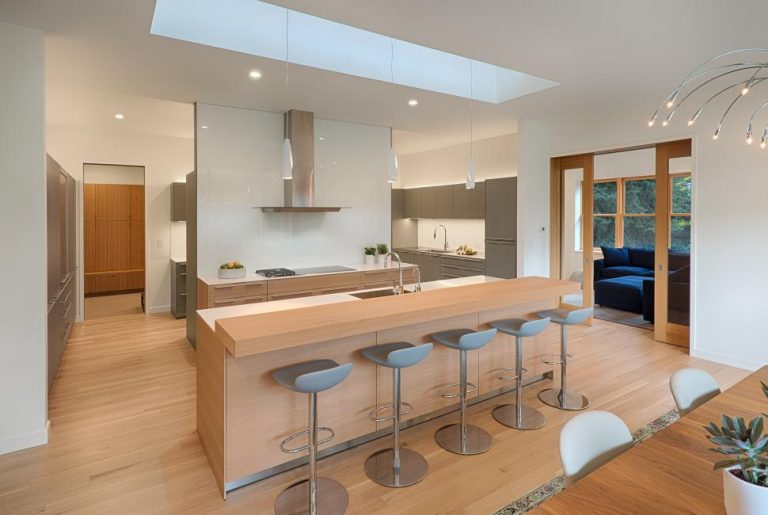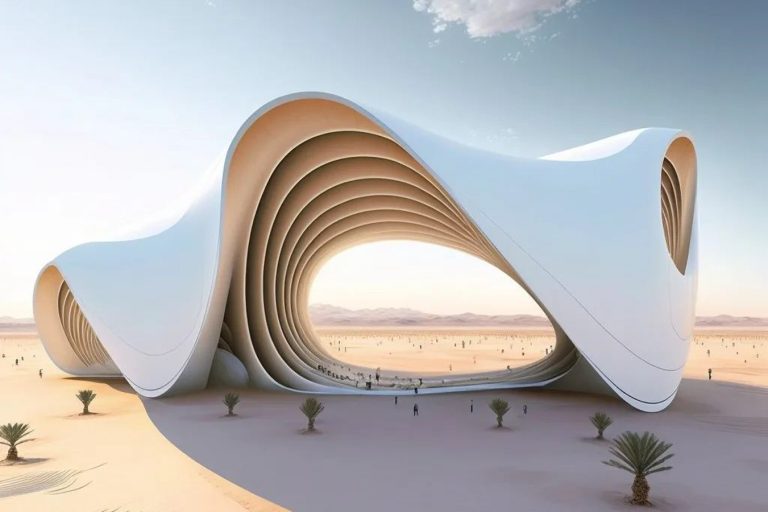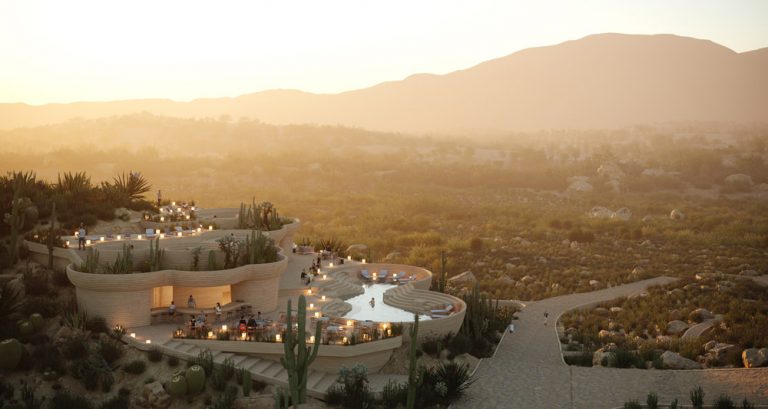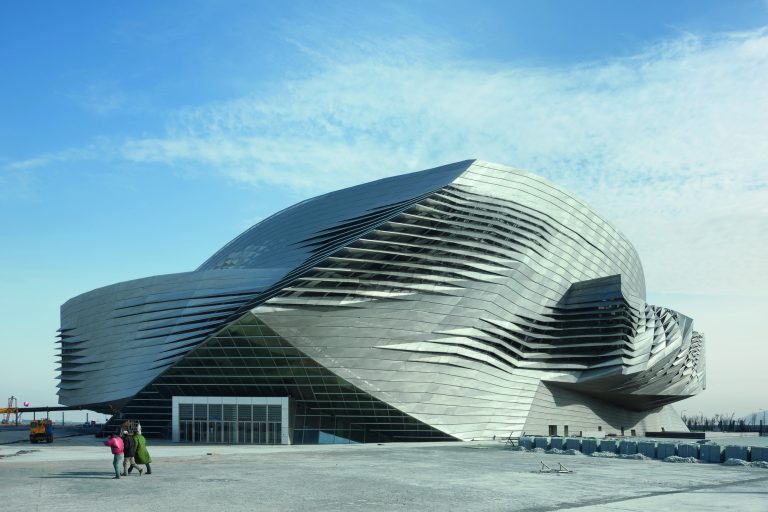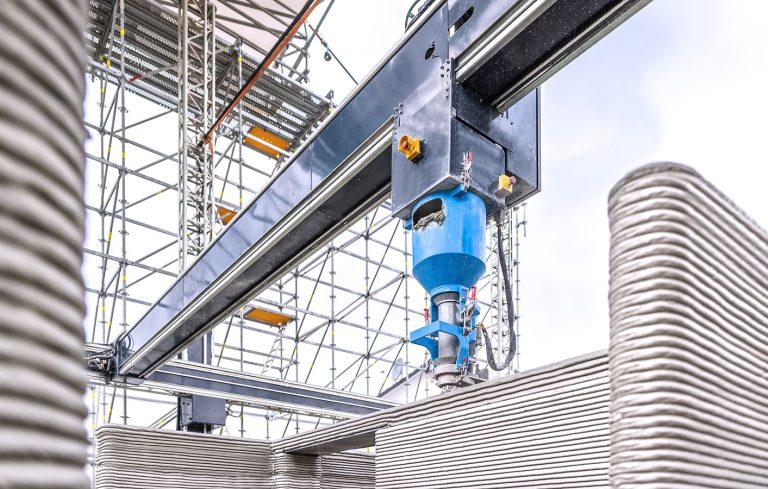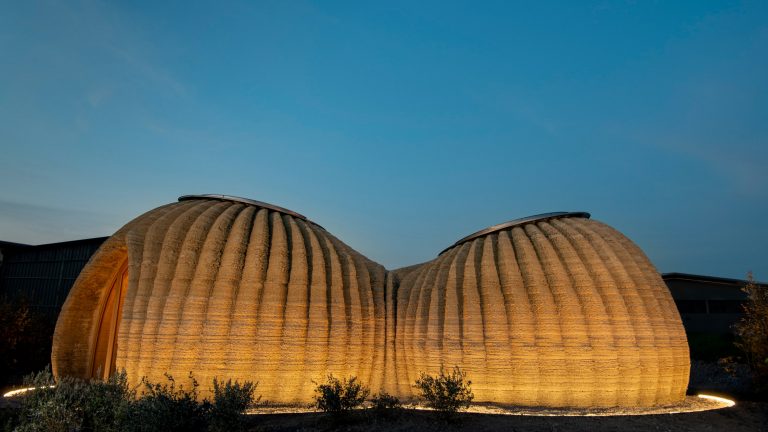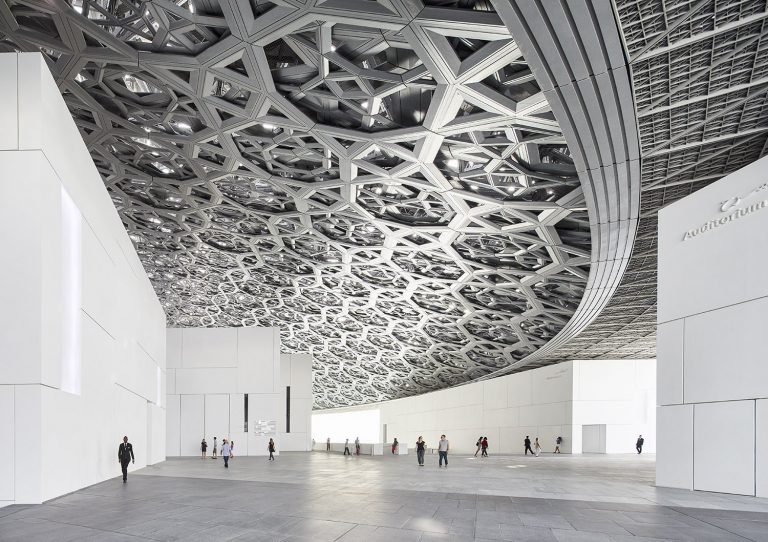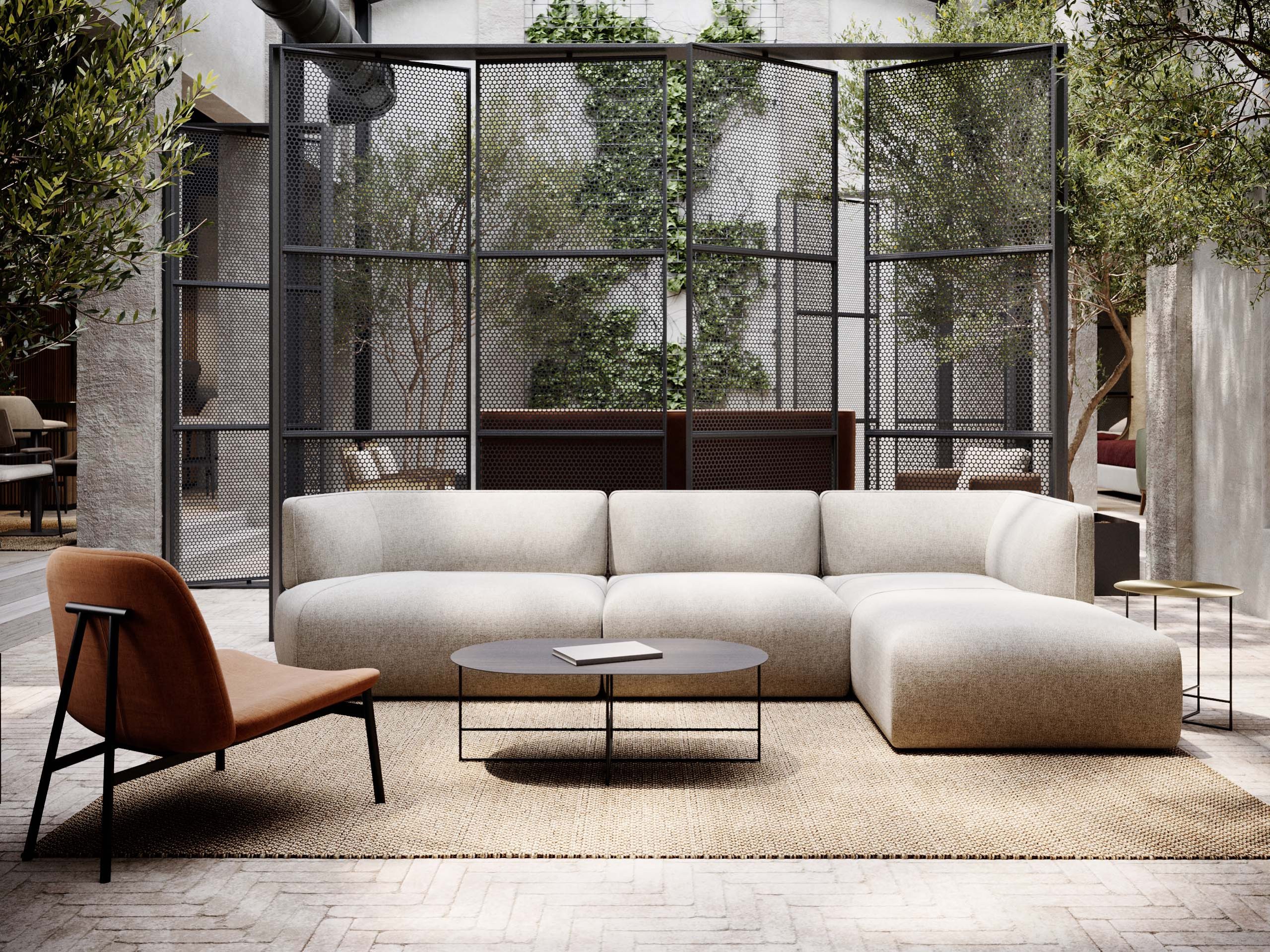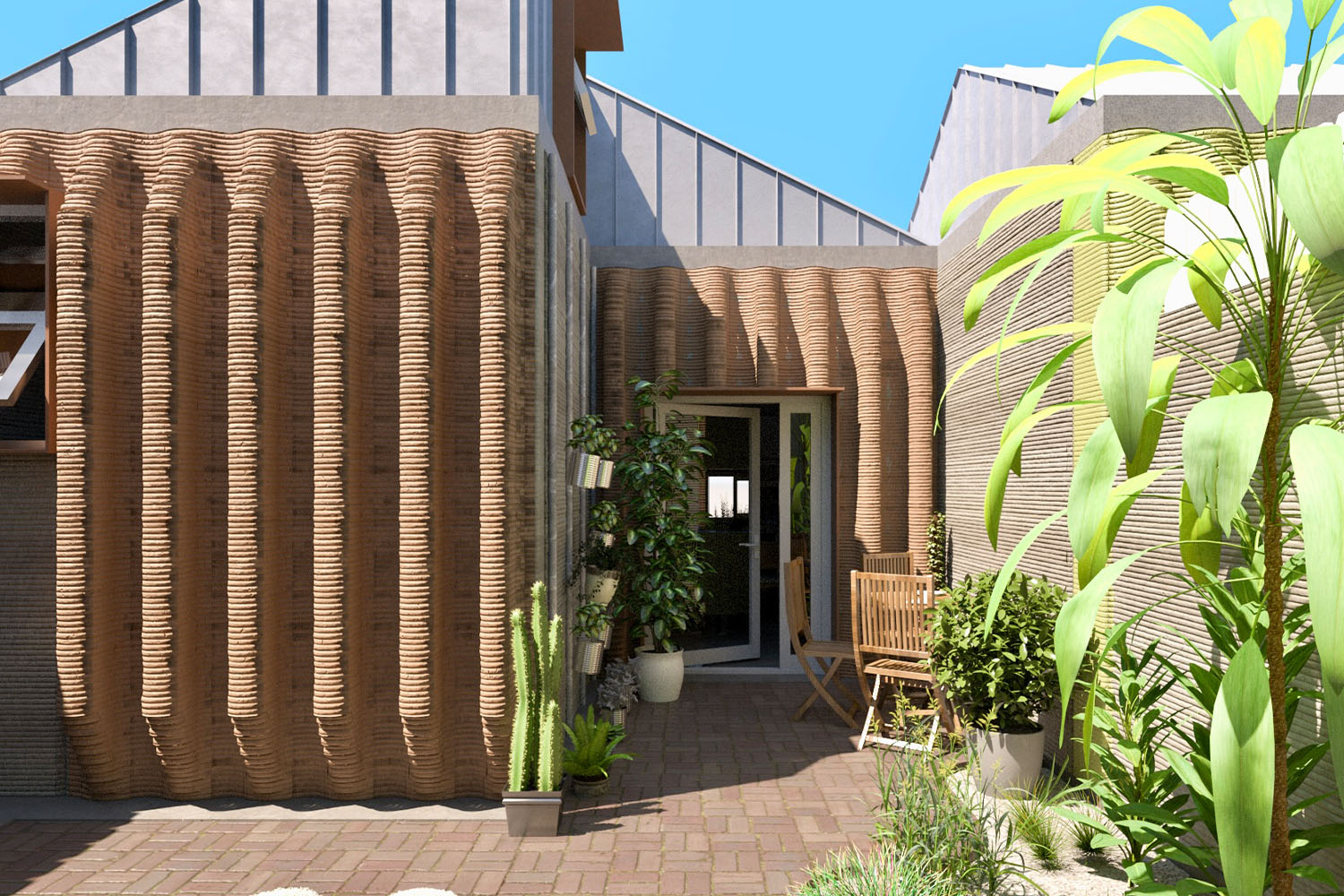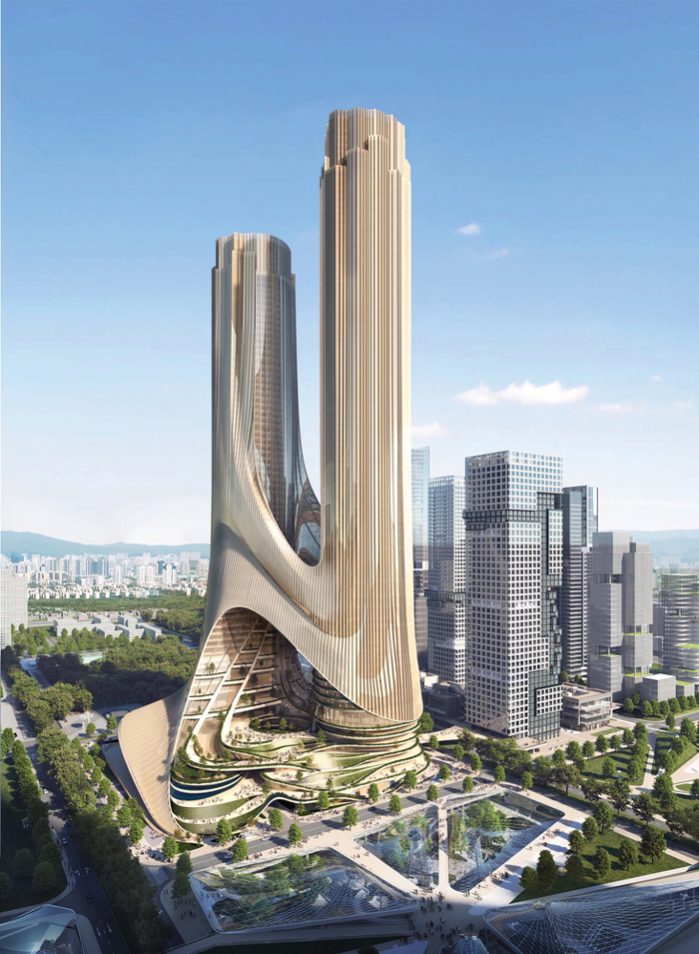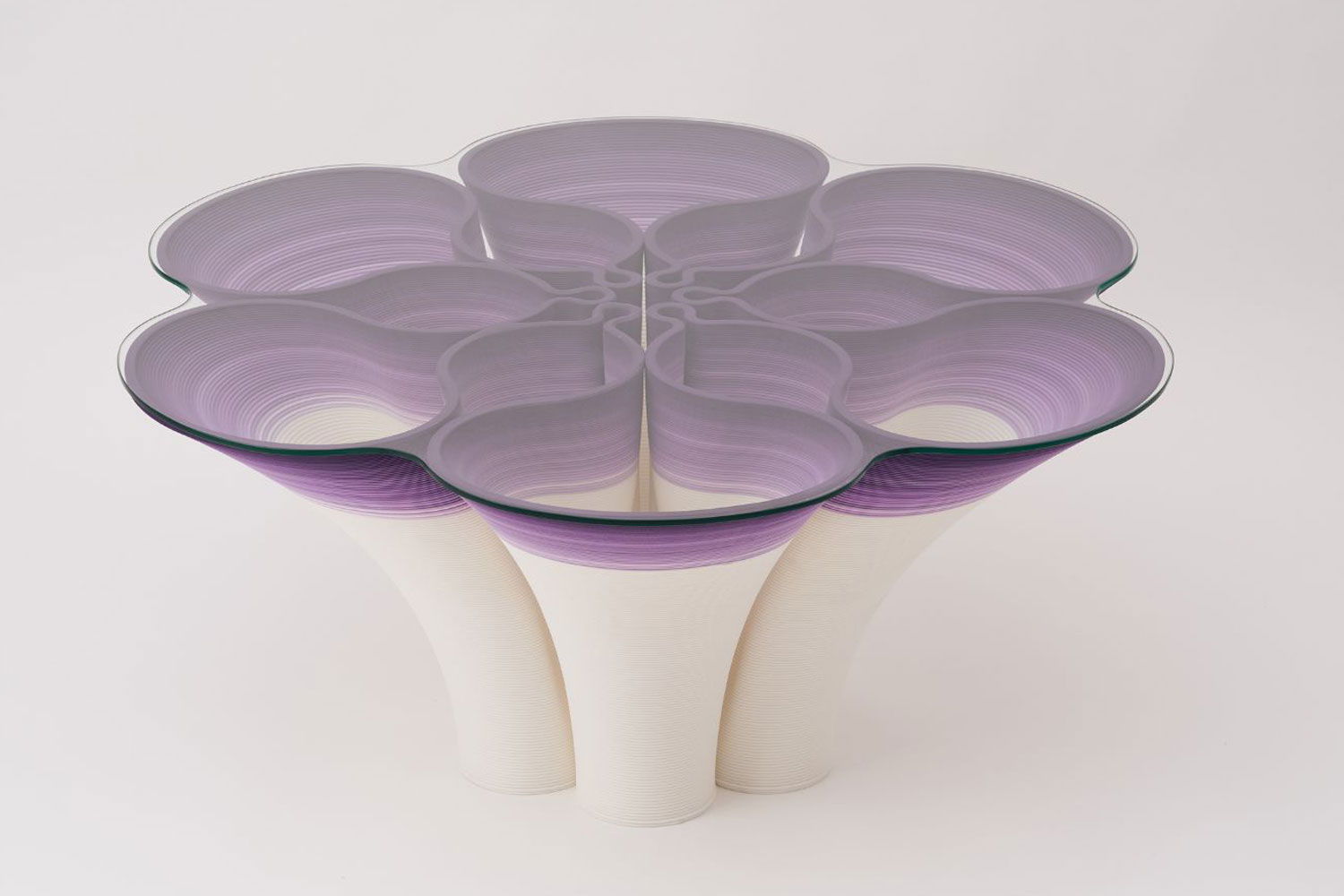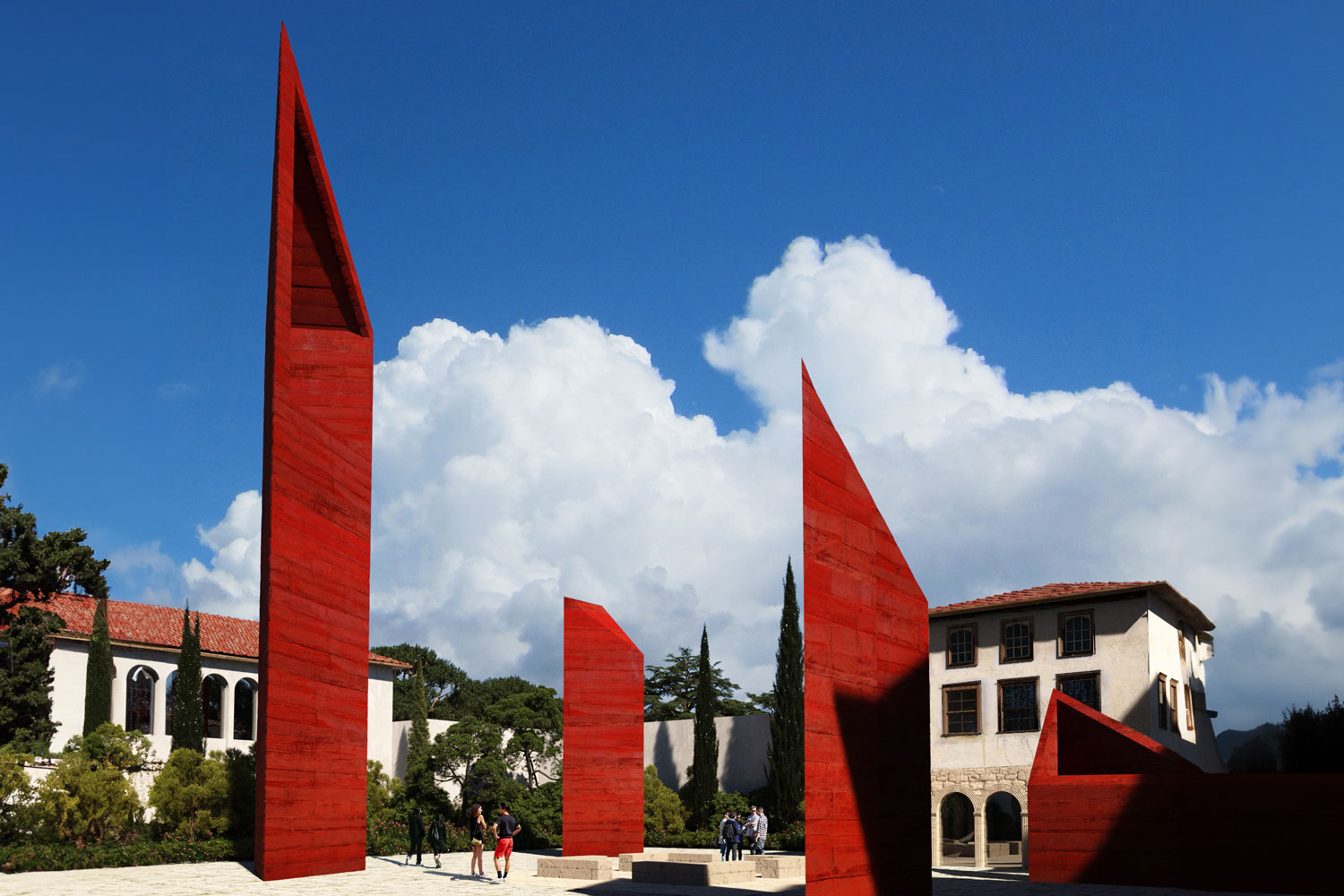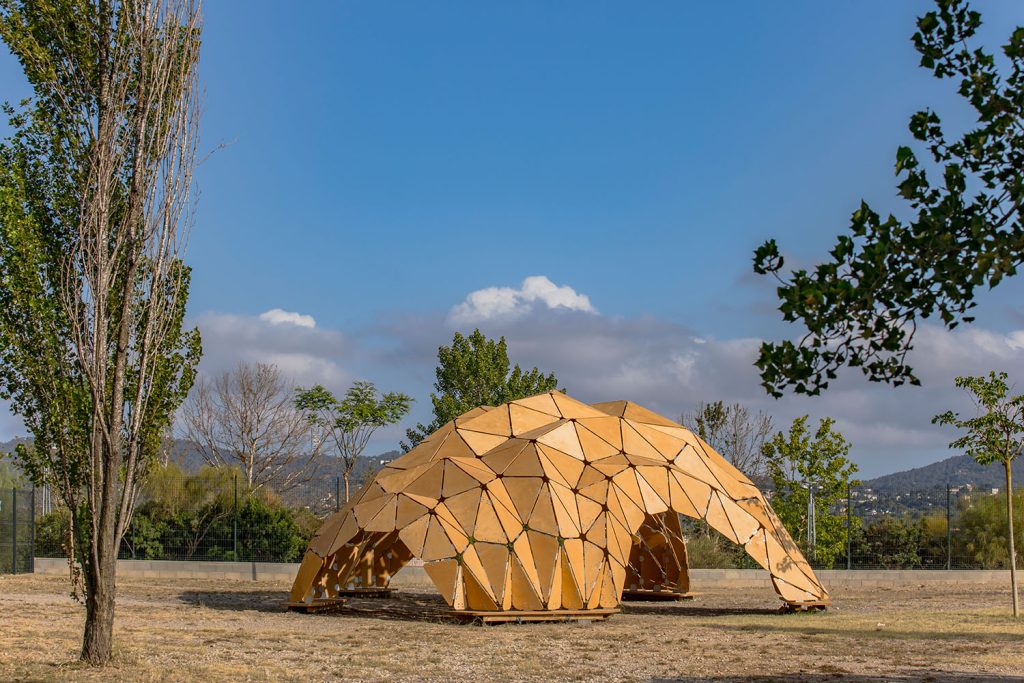
The Pentaura Pavilion is a timber umbrella that was made to give the students and teachers at Escola Turó de Can Mates, a primary school in Sant Cugat del Valles, Spain, a place to hang out and get shade from the sun. The brief said that there needed to be an outdoor theater and classroom that could provide shade, stand up to strong winds, fit young, excited students, be very light, and have a long span.
As a design study project, students in the Master of Parametric Design in Architecture program at the Polytechnic University of Catalunya (UPC) made this building. It comprises three-sided birch plywood pieces joined with galvanized steel plates. There is no doubt that the shell is a pure architecture system. The structural plates make a beautiful shape. To make the lightweight pavilion, architects used building methods that were influenced by many things, such as funicular shells, Gaudi’s hanging chain models, paper origami (specifically Miura designs), and corrugation.
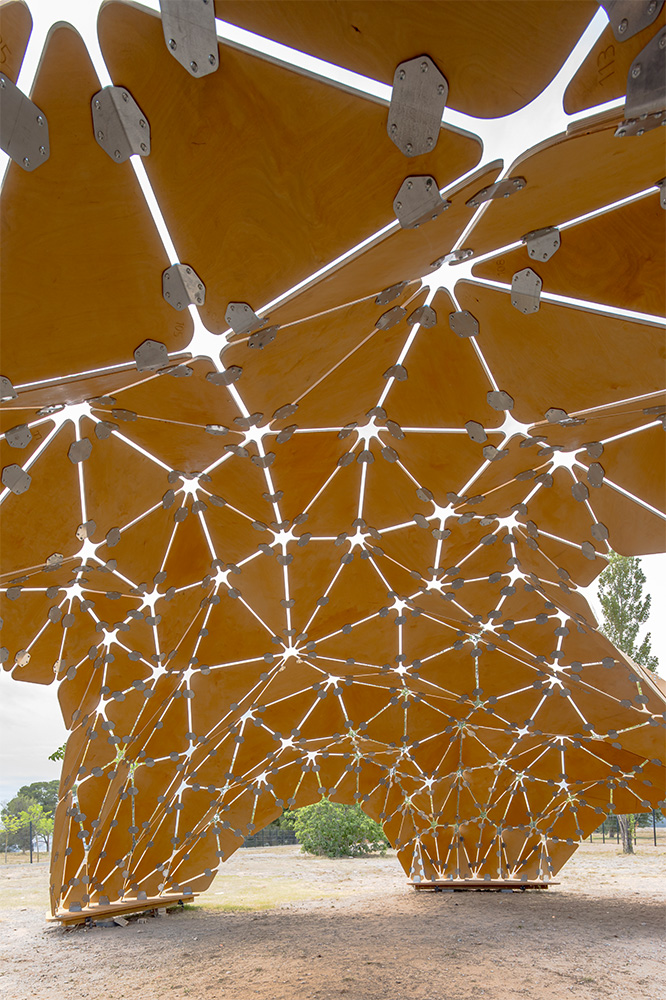
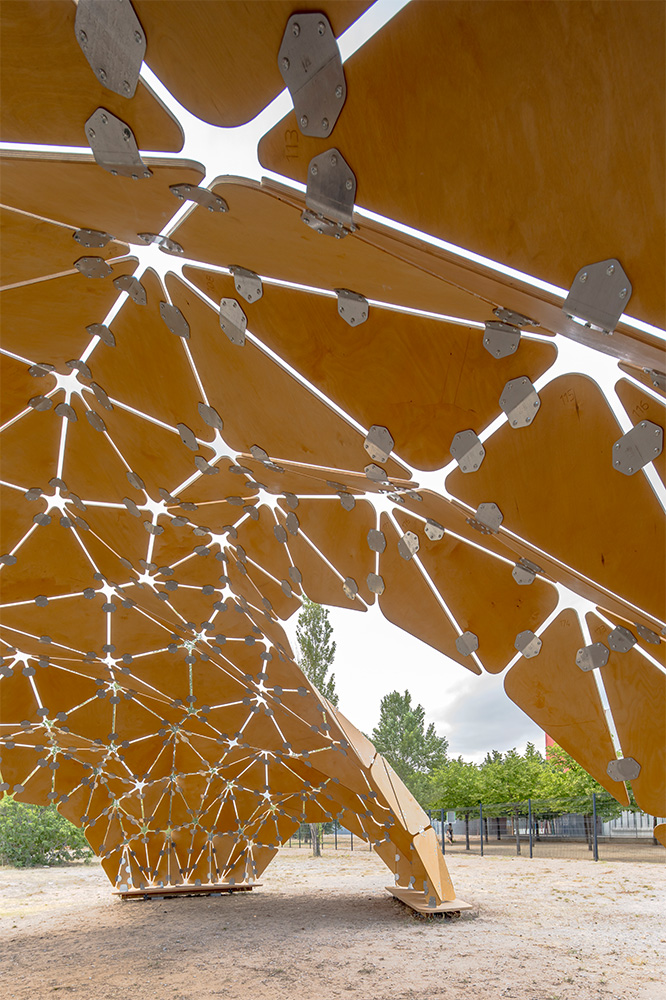
The base form of Pentaura Pavilion is based on a method that Gaudi‘s hanging chain models inspired. The shape comes from parametric modeling loads. The design wants the material to mostly act in a compressive way, making use of the qualities of thin plywood. The paper origami folds were based on Miura patterns named after the Japanese astronomer Kōryō Miura. They make a tessellating pattern that makes the folding pattern of the thin shell look better. Corrugation is often used to strengthen roof panels or shipping container walls. It is also used in the single skin to make it stronger and stiffer while using less material.
Parametric and optimization tools, mostly Grasshopper and its plugins, were used to find forms and plan the architecture. The team did a structural study, set up CNC manufacturing, and put the pavilion together alone. From the idea to the building, the whole process was parametric, which meant that the best materials were used, the number of unique links was cut down, and the structure was designed to handle different loads.

The combination of the structural technique of corrugated plate structures and plywood material allowed the team to achieve spans of 10m within a strict budget for the school.
A further thesis study by Rob Fuse (Associate Engineer in London) and Cris Cabezas (Design Engineer in Barcelona) focused on the orthotropic nature of timber and how to enhance the shell by analyzing the material properties of timber. The paper they authored describes a parametric process called the Orientation Finder Method, which was created to determine the optimal orientation of laminated timber materials in hyper-complex timber structures for maximum efficiency. This method is capable of use at scale and proposes its use on CLT structures.
Project Info
Student Team: Xavier Almanza, BINDHUJA REDDY , Imma Bigas, Cristian Cabezas Osorio, Miguel Cruz, André Almeida, Rob Fuse, Nerea G. Egusquizaga, Shylesh Kumar, Adriana Moreno Chavez, Anna Nasrallah, Nayib Pérez Benítez, @Vijithendra Thejaswi R V, Arshita R. , Mariona Rodríguez , Abiodun Shonibare
Faculty: Gerard Bertomeu, Dragos Naicu, Marc Serra Ureta, Alex Solà de los Santos, Enrique Soriano, Pep Tornabell, with international expert guest faculty: Julian Lienhard, Almudena Majano, Antonio Lara.
Note from designers: We want to thank the AFA, management, and staff of Escola Turó de Can Mates for their kindness and support during all the process. We also want to acknowledge the ETSAV – UPC Architecture school for hosting the master and the workshops, Daniel Piker for creating Kangaroo2 and many other amazing features, the Karamba3D team, Spirafix Limited – Ground Anchors for their unique ground screws, manxa for their hardware support, Sumeplast SL for nifty cnc work and LASER PENTA S.L for their metal works.


